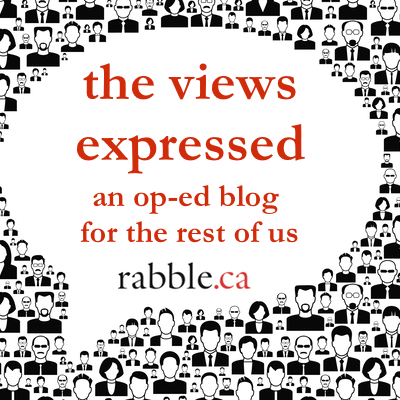Q: How many freedom of information requests does it take to talk to a government scientist?
A: That’s classified!
A recent CBC story revealing the difficulty a Canadian Press reporter had in getting an interview with a government scientist (it took 110 pages of emails between 16 civil servants — to no avail) comes across as a bad joke, but is sadly true. And this Kafkaesque difficulty applies not just to getting interviews with scientists, but to librarians, ministers — every level of government bureaucracy.
As a journalist, I’ve noticed this chill creeping into place in recent years. It used to be you could be put through to a minister without much difficulty. I even recall the mayor of one Canadian provincial capital answering the phone at the mayor’s office personally!
These days.. not so much. Government public relations bureaucrats have insinuated themselves into a middleman, broker-style role, controlling access between the public and pretty much anybody who works in government.
Is that a problem? Should journalists deserve privileged access to these people? Yes, absolutely.
Democratic politics does not work without free and unfettered access by the press to those employed at every level by our government: from scientists to librarians to assistant deputy ministers to the ministers and MPs themselves. Government is an extension of the public, and is employed by the public and accountable to the public. And the media is meant to act as an institution of public accountability in our society.
For this to work, media requires access to all levels of government — to monitor what government is doing and to report back to the public on it; to ask the questions the rest of the population is too busy to ask on a day-to-day basis; to remind the politicians occasionally of their responsibilities if they start to drift in strange and troubling directions.
Expanding and empowering public relations offices as the gatekeepers to government has led to a serious erosion of democratic accountability. It is an attempt to remove the access journalists have to government by treating journalists as though they, and the role they play, are no more important than any other petitioner to government. “Yes, you can speak to the minister, but fill in a form and take a number and wait for your turn like everybody else.” It’s a very Foucauldian, discursive way of disempowering our media, which has been called the fourth estate of democracy for good reason.
In Canada, the passive-aggressive struggle between media and government started with Stephen Harper’s Conservatives, but is now infecting every level of provincial and municipal bureaucracies (even public institutions, like schools and universities, are adopting this dangerously undemocratic mode of engagement with the press and the public).
So, in the face of that grim news, how about a joke?
Knock knock.
Who’s there?
Media.
Sorry I can’t talk to you, you have to get authorization from the press office first.
Knock knock.
Who’s there?
Media.
Sorry I can’t talk to you, you need to fill out a contact information request form and fax or email it to our office first, along with the applicable fee, before a press officer can consider your request.
Knock knock.
Who’s there?
Media.
Sorry if you’re calling to check up on your request you have to wait a minimum 72 hours to allow for processing and review.
Knock knock.
Who’s there?
Media.
Sorry your request for a review of your interview request with a government scientist hasn’t been processed yet so I can’t speak with you. If you’d like you can fill out an expedited request form and submit it to our office along with the expedited request fee. This will guarantee your request will be considered within the standard review period.
Knock knock.
Who’s there?
Media.
I’m sorry, your request forms have been lost. Please try again.
Knock knock.
Who’s there?
Media.
I’m sorry, we did receive your request for consideration of your interview request, but it appears that a previous request for consideration of an interview request was submitted and lost. You need to submit a ‘cancellation of lost interview request’ form before we can consider your new request or speak to you at all.
Knock knock.
Who’s there?
Media.
I’m sorry, your interview request was denied. If you’d like further information, you’ll need to submit an appeal of denied interview request form and tick the box that says ‘please provide rationale for denial of interview request, where rationale exists’. Also don’t forget to submit the fee for ‘request of denial rationale’.
Knock knock.
Who’s there?
Goldstar Mining Corporation Inc.
Oh just one moment, I’ll get the minister for you.
Hans Rollman is a graduate student (PhD in Gender, Feminist & Women’s Studies) at York University and an editor and writer. He is a reporter and editor with the independent media site TheIndependent.ca, and has been published in a range of other publications including Briarpatch Magazine, Macleans On-Campus, Feral Feminisms and more.



